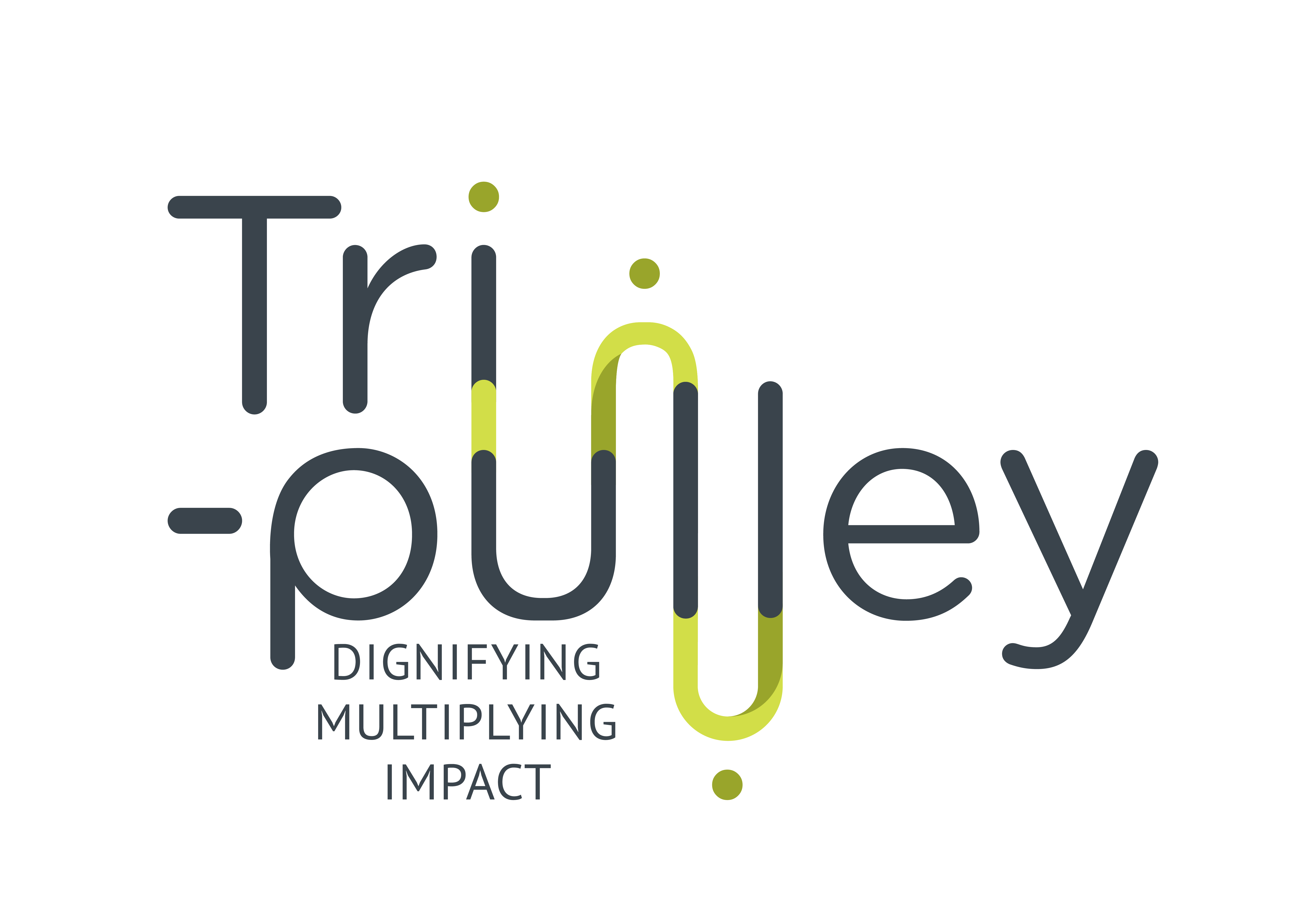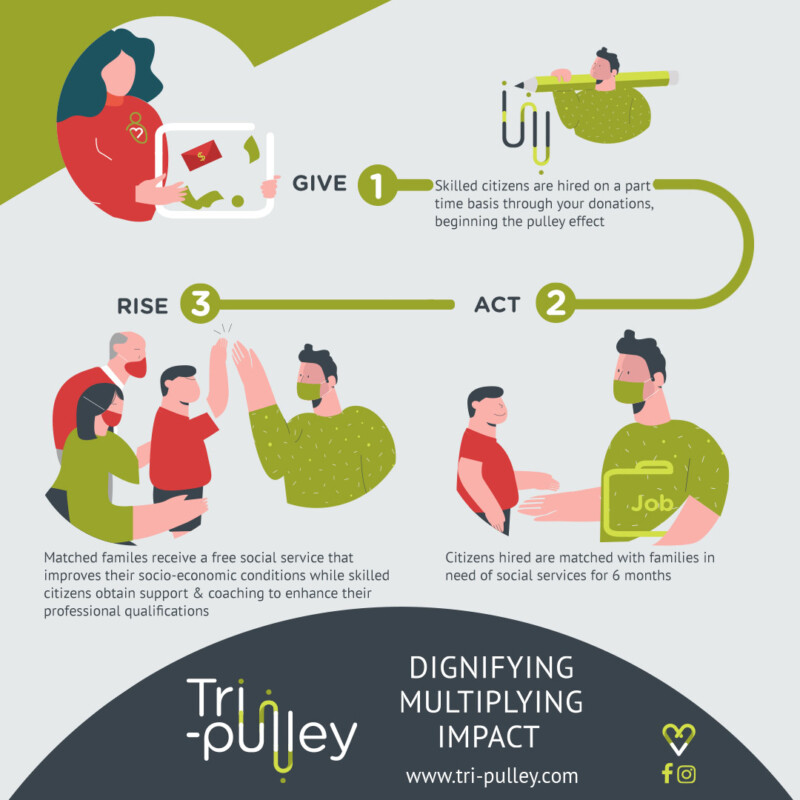Project Description
Creating temporary “job” opportunities for skilled individuals who will in return service other vulnerable families/MSMEs or initiatives by improving a social problem.
Our Story
In May 2020, Tri-pulley was born after watching with despair how many people were relying on food parcels and charity to get by. We felt that this model is often undignifying, unsustainable and reinforces the system of dependency and clientelism entrenched in the country.
We believe that most people have skills and can be productive. We believe that there is an increased scarcity of resources and that money needs to be spent where its impact multiplies and lasts for longer. We believe that people can contribute with their skills to improve the socio-economic conditions of others and ultimately the conditions of the country.
Our Model
Tri-pulley works on creating paid temporary job opportunities for skilled individuals who will in return service, for free, other vulnerable families, small businesses, NGOS or initiatives. Thus through Tri-pulley’s Model, these skilled individuals contribute to solving or mitigating a social problem when matched with an individual or entity needing their skills.
Vision
We believe in a future where jobs and skills — not charity — empower women, youth, and persons with disabilities to thrive with dignity.
Mission
How?
- Employment period: 6 months that give the skilled individuals enough time to gain experience, improve their psychological state and search for a more sustainable long-term job.
- Monthly Payment: for a few hours per week (depending on the type of services provided) in addition to providing the material if needed to carry out the services during the 6 months.
- Services rendered: can be in any social sector: education, health, elderly support, environment, violence prevention, citizenship, workforce support to businesses and social enterprises…
- Professional skills upgrade: in addition to the monthly payment, the skilled individuals receive on- the-job training, and coaching on related soft skills, CV write-up and review, interview techniques, and job search process and resources and are linked to training and the job market through forwarding relevant job vacancies and training offers. They also receive a recommendation letter at the end of their job placement. All those services increase their professional skills and their probability of getting employed in long-term jobs.
- Visibility and networking: the skilled individual also benefits from the visibility and exposure Tri-pulley provides as well as its wide network of partners.
- Tri-pulley coordinates closely with several local and national NGOs as referrals, the main source of the beneficiaries of the initiative.
The “Do no harm and decent work” standards of the model:
- The design of the model takes into consideration the rights and the safety of the program participants. It encourages and supports the participants to be actively searching for a stable job ensuring they do not to become dependent on the model (as such the employment period under the project is limited to 6 months and for a few hours per week);
- Tri-pulley is also keen not to raise the expectations of the beneficiaries beyond actual salaries that are paid for similar activities in the market (thus the payments are set at an amount that is constantly reviewed as Tri-pulley monitors the market salaries and adapts the monthly payments accordingly).
The Model also:
- Replaces charity and the traditional distribution channels (money, cooked or dry food, hygiene/medical parcels) with payment for services of skilled people who in return will support other vulnerable families
- Matches available local skills with local vulnerability needs
- Ensures that the services provided help in solving/improving a social problem
- Provides community support to the same community
- Matches services with fair working hours
Pilot match example that started on May 10 2020:
A family of 9 with unemployed individuals can’t find a way to make ends meet. One of the adult children has a certification in Elderly Home Care but is unemployed. Instead of giving money or food to the family, the funds were used to pay the unemployed person who matched his skills to the needs of an old couple, one being on a wheelchair, who needed home care services.
Project outcome: Dignifying multiplier socio-economic impact
The 6 months Period and Service Hours
- We consider the 6 months as a grace period where the skilled individuals can earn some kind of income while they search for more sustainable solutions with reduced stress.
- Selection Criteria is based on those who are more likely to find jobs or be integrated in programs after 6 months.
- This period is adequate for Tri-pulley to put a development plan with the skilled individual to work on their strength and gaps. It is also sufficient for businesses to evaluate the skilled individuals’ performance and decide to keep them onboard, depending on their needs and budgets.
- This period and the limited number of hours /week are carefully set to reduce dependency on Tri-pulley’s program and encourage the person to look for long-term opportunities.
- This period allows Tri-pulley to support more people, families and entities through the model.
- The job is purposefully designed not to be full-time placement as we want the candidate to have time to search for long-term solutions.



